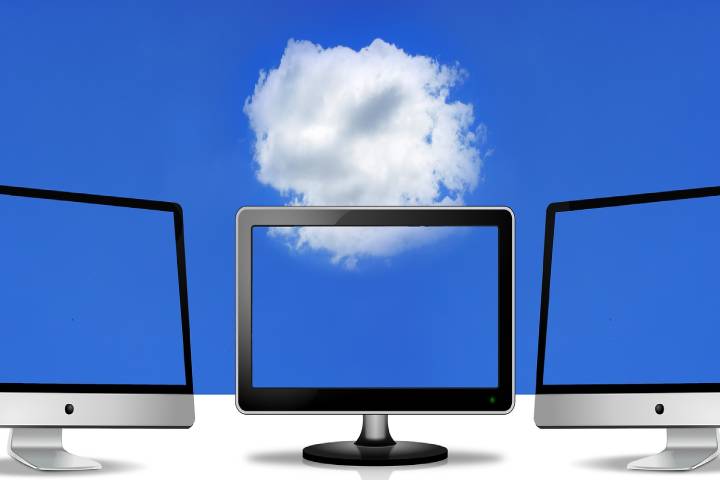The Internet has put the whole world at our fingertips. Access to any information is available to anyone with a single gesture. Keeping that information is another story.
Until recently, the only solution for storing data went through physical formats, from CD to Pendrive or external hard drive. This process has been greatly facilitated by cloud computing technology, which allows you to store data without having to worry about the availability of physical devices.
What Is Cloud Computing?
Cloud computing is also known as cloud services, concept cloud, or simply “the cloud”. These are those programs and services hosted on a server that can be accessed from a web browser, on any electronic device connected to the Internet. Email or applications like Google Drive are examples of cloud computing.
It began to be used during the first decade of the 21st century when large companies such as Google, Amazon, or Microsoft began to offer their services through the web. However, the term would not be really popular until the appearance in 2011 of Apple’s iCloud service, which would allow file sharing between iOS devices without the need for physical devices. Since then, the ease and convenience of cloud storage have only increased its popularity and caused other large corporations, such as Microsoft, with Azure, to take an interest in developing applications and services in the cloud.
Advantages Of Cloud Computing
- Reduce costs: It is not necessary to pay for infrastructure, for a physical medium or, for a software license for each computer. Knowing what cloud computing is has made things much easier for small businesses, which otherwise could not afford to access some of those services.
- Less space: Cloud computing services allow you to work without the need to install software on the device or, in any case, they are limited to lightweight applications. This speeds up access to information and avoids unnecessary memory consumption that slows down processes.
- Greater security and accessibility: If the physical support stops working, the data stored in the cloud is not lost and can be consulted from any other device.
- Energy-saving: Energy-savings servers, high energy consumption is usually necessary, which is usually above what they require. However, the cloud only consumes just enough to function, reducing waste.
- Freedom of access: The implementation of the cloud, as well as the use of mobile devices with an Internet connection (smartphones, tablets …), has greatly facilitated access to the contents of the cloud, which can be consulted from anywhere and at any time, without the need for a computer.
Cloud Computing – The Future Of Companies
Once you know what cloud computing is, you must be clear that it is a technology with great potential that is becoming an essential tool, both for users and for companies, especially in the world of ICT. It is particularly important for SMEs, as it allows them to access services that would otherwise be too expensive and that until recently only large companies could afford. This fact has allowed the growth of small companies, which thanks to cloud computing can increase their business volume and improve their competitiveness in a market that is becoming more and more complex. Its unstoppable advance, therefore, makes training in this field more and more necessary. Keeping up-to-date on cloud computing management, its typology, or the legal aspects that affect it, can open a path to business success.
Also Read: The 5 Most Demanded Computer Skills In The Labor Market
